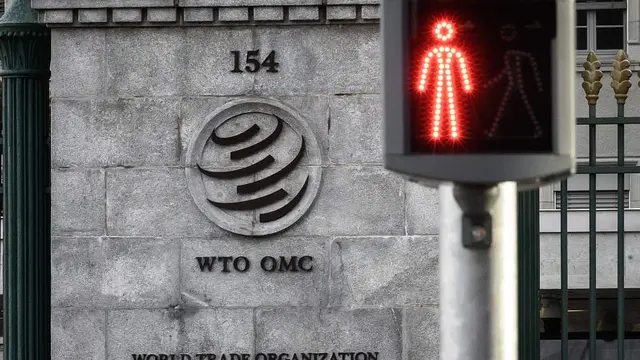G7 nations said on Friday they would take steps to deny Russia a "most favored nation" status, which would revoke benefits of Russia's membership of the World Trade Organization (WTO).
"We welcome the ongoing preparation of a statement by a broad coalition of WTO members, including the G7, announcing their revocation of Russia's Most Favored Nation status," the G7 countries said in a joint statement released by the White House.
Earlier, U.S. President Joe Biden announced that the U.S., European Union and G7 countries were moving to revoke Russia's "most favored nation" trade status. The U.S. will also take steps to ban the import of Russian seafood, diamonds and vodka, he said.
In 2019, Russia was the 26th largest goods trading partner of the United States. Russian exports to the U.S. in 2021 totaled $29 billion, according to the U.S. Trade Representative's office.
Top imports from Russia included mineral fuels, precious metal and stone, iron and steel, fertilizers and inorganic chemicals, all goods that could face higher tariffs.
Biden on Tuesday imposed an immediate ban on Russian oil and energy imports. He has also signed an order banning the sale or delivery by any other means of dollar bills to Russia. The order prohibits "the exportation, reexportation, sale, or supply, directly or indirectly, from the United States, or by a United States person, wherever located, of U.S. dollar-denominated banknotes to the Government of the Russian Federation or any person located in the Russian Federation."
A most-favored-nation clause requires a country to provide any concessions, privileges or immunities granted to one nation in a trade agreement to all other WTO member countries. Although its name implies favoritism toward another nation, it denotes the equal treatment of all countries.
World shares slid on Friday, pressured by uncertainty about the conflict in Ukraine. The Dow Jones Industrial Average fell 229.88 points, or 0.69 percent, to 32,944.19, the S&P 500 lost 55.21 points, or 1.30 percent, to 4,204.31 and the Nasdaq Composite dropped 286.15 points, or 2.18 percent, to 12,843.81.
Europe's benchmark STOXX 600 index closed 1 percent up after three consecutive weeks of losses.
Emerging market stocks lost 1.55 percent. MSCI's broadest index of Asia-Pacific shares outside Japan was 1.67 percent lower, while Japan's Nikkei lost 2.05 percent.
(CGTN)
 简体中文
简体中文






